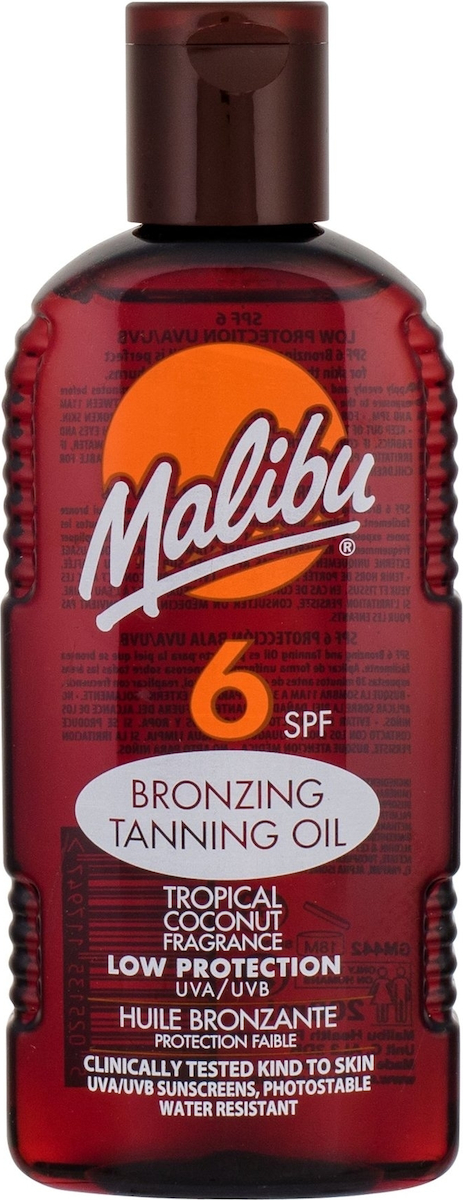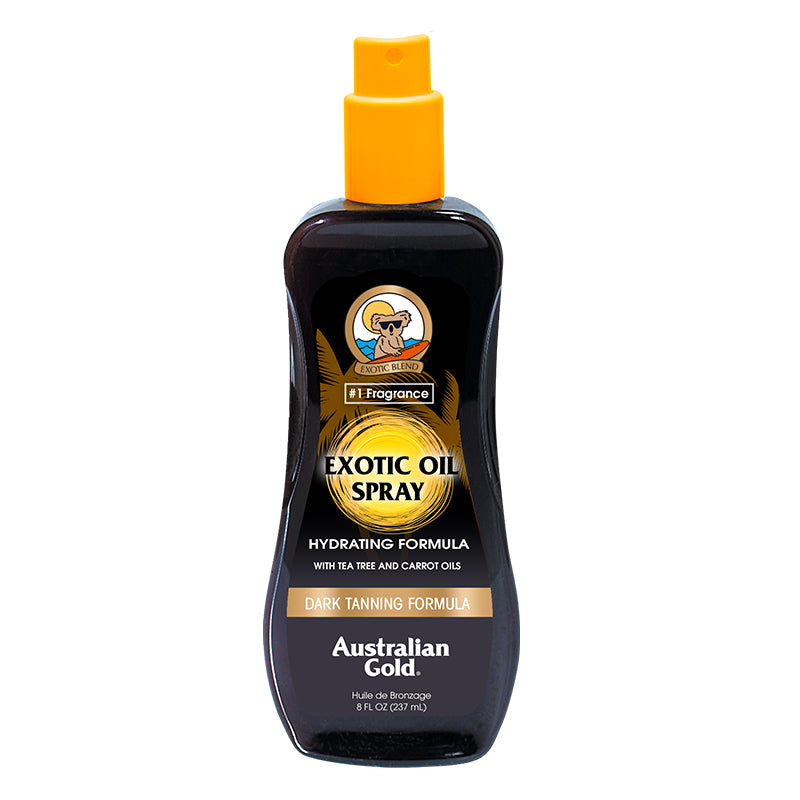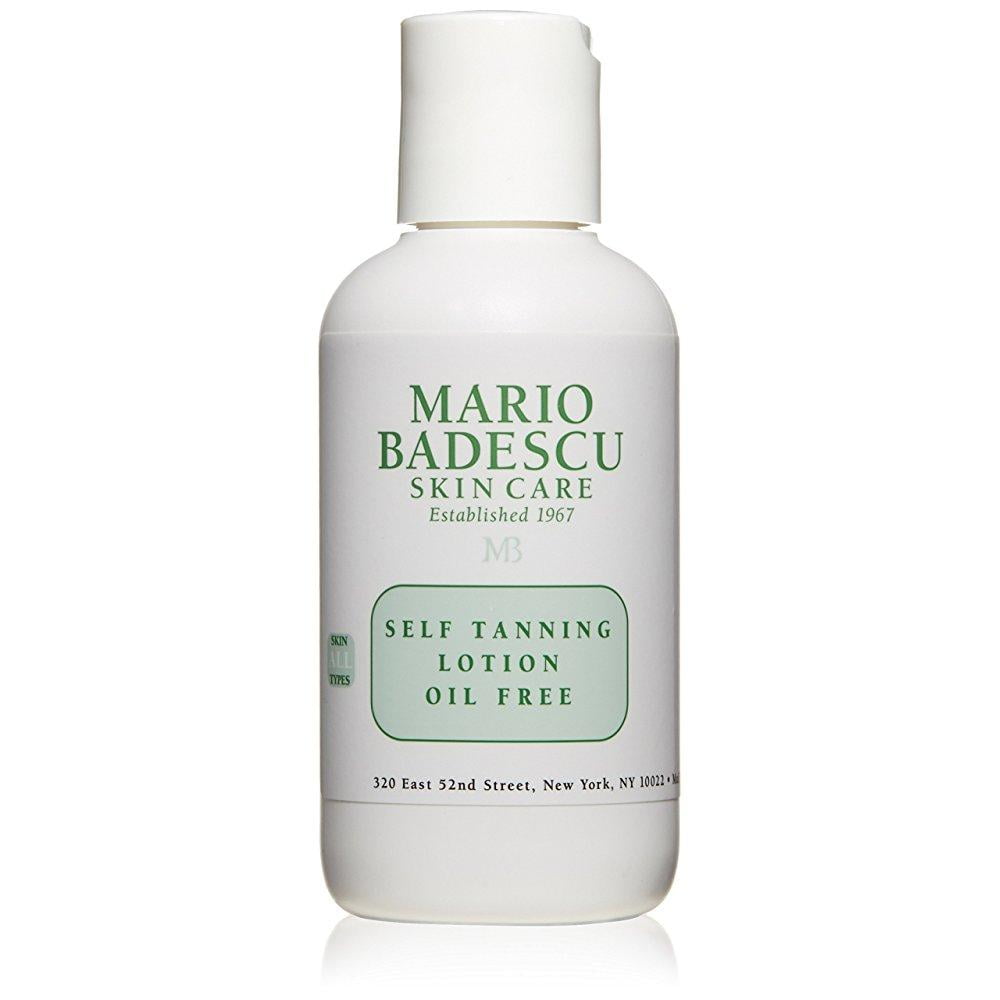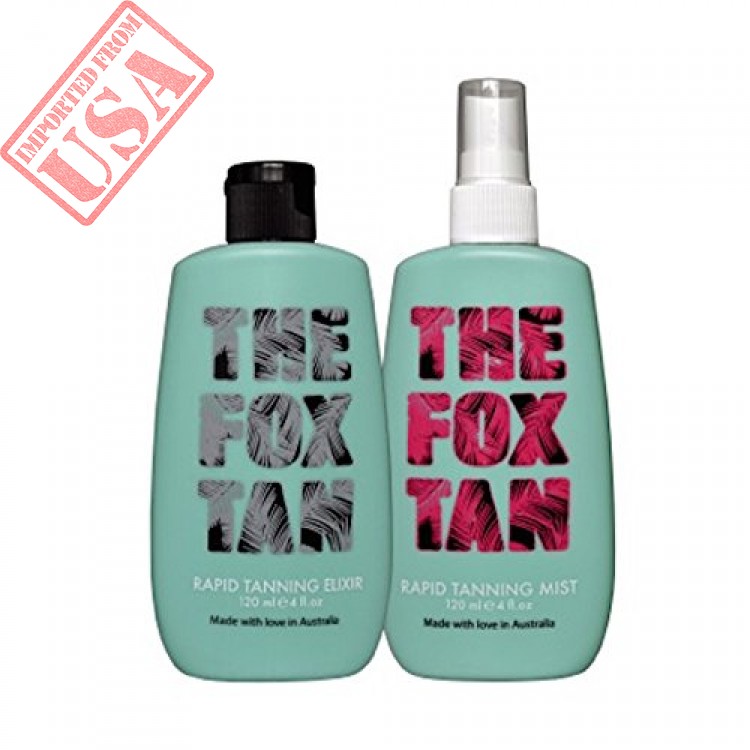Tanning oils are products that support healthy tanning by moisturizing your skin and reflecting more UV light which, in turn, speeds up the tanning process and allows for a darker tan. However, most tanning oils do not provide any protection against UV rays, which can make you susceptible to burning if your skin is naturally more vulnerable. Tanning oils speed up the tanning process, enhancing both indoor and outdoor tanning. Unlike tanning lotions, which are typically creamy in texture, tanning oils are thinner and easier to apply. Skin absorbs tanning oils faster than tanning creams, leaving it extra moisturized and hydrated. Some tanning oils also nourish your skin with vitamins and antioxidants, which condition and protect your skin against signs of aging.
Since most tanning oils don't contain over SPF 4 sunscreen, they do not provide adequate protection against the sun's harmful rays. The best tanning oils in 2021 listed below were chosen because they all offer the best bronzing performance and feature the best user reviews. Many topical self-tanners contain the compound dihydroxyacetone . Topical DHA formulations come in lotions, gels, mousses, sprays, and wipes.
DHA is a sugar molecule derived from plants that reacts chemically with the amino acids in the stratum corneum to produce pigment when applied to the skin. This reaction is known as the "Maillard reaction," and it does not require UVR to produce a pigment change. The resulting pigments are called melanoidins, which are similar in pigment to melanin. Once DHA is applied to the skin, it takes approximately two to four hours to begin the tanning process and can continue for 24 to 72 hours. DHA is resistant to normal water, soap, and sweat exposure.
The temporary color bronzers also have a higher tendency to cause blotchiness, an uneven tan, and a less natural looking color. The exception to this is if there is a very dry area on the skin, in which case it is recommended that the user apply a very thin layer of moisturizer to that area. Applying the product to the body with a circular motion can help prevent a streaky look. This concentration range allows users to adjust the intensity of their coloration as desired. Since they first hit the marketplace in the 1960s, DHA formulations have improved. This is due in part to purer supplies of DHA, better manufacturing, including ingredients that better complement DHA, and making the compounds more acidic.
Newer products also contain lower concentrations of DHA. As mentioned above, DHA comes in multiple formulations, each having their own benefits. Lotions tend to last longer than sprays; however, sprays reduce the risk of blotching and streaking. Mousses and gels tend to have a faster drying time, and mousses contain less moisture so they can be beneficial to users with more oily skin. Outdoor tanning has its own benefits when compared to indoor tanning, as we are talking about exposing our body to the sun's rays.
While excessive exposure could be a problem, careful exposure can provide many benefits. The tanning lotions will give a tan that lasts long and you can gladly show your gorgeous golden glow to the world. Also, most of these lotions provide moisture and make the skin healthier, so you have a win-win situation with these best outdoor tanning lotions and oils.
Choose from the list above and enjoy that sun-kissed glow you were desiring for a long time. Sunscreen is a product that offers protection against skin damage caused by ultraviolet rays. It protects the skin from premature ageing, sagging, wrinkles and also reduces the risk of skin cancer. On the other hand, tanning lotion is a product that helps people achieve a tan without sun exposure. It helps achieve a uniform tan while also providing hydration to the skin and supplying essential ingredients such as essential oils, antioxidants, vitamins and fruit extracts.
Once upon a time people might run some sunflower seed oil or baby oil on their skin and head to the beach. Once we learned about the harmful effects of UV rays, the industry changed. Choosing the best tanning oil means picking one that can accelerate a tan.
Let's take a look at some of the best tanning oils on the market. Besides moisturizing skin and protecting it from signs of aging, tanning lotions claim to offer such benefits as providing a more even, longer-lasting tan. A basic lotion, or "accelerator," usually contains the ingredient tyrosine and moisturizes your skin and helps speed up the tanning process. According to the American Tanning Institute, these additives allow your skin to tan more quickly by stimulating melanin, a pigment that causes your skin to turn golden. A "bronzing lotion" works much like an accelerator, but bronzing lotions also contain ingredients to enhance the look of your base tan.
These additives react when they come into contact with the dead cells that sit on the skin's top layer, thereby producing a deeper, darker color. Bronzing lotions give the appearance of color but don't actually penetrate the skin. In the same way that you are able to burn in natural sunlight, this is a possibility. Keeping skin moisturised between tanning sessions will also protect from this. A tanning lotion will also protect skin due to the top quality skincare ingredients that keep skin rejuvenated, therefore this will also minimise this risk.
Indoor tanning lotions accelerate the tanning process, by promoting the production of melanin. Increasing blood flow to the skin is a proposed mechanism, which may in turn stimulate production of melanin by melanocytes. Indoor tanning lotions usually contain no sunscreen and offer no protection from the sun.
However, many tanning lotions currently contain sunscreen. Unlike sunless tanning lotions, these are designed for use with an ultraviolet source such as a tanning bed or booth. Tanning oils can also work when used outdoors, unlike most tanning lotions, which work specifically for indoor use only. The biggest question when choosing between suntan lotions, oils or creams is deciding what your purpose is in putting them on.
Suntan oils are typically used for getting a deep dark tan and usually do not have much SPF protection in them. These types of products should only be used by people who have dark skin to begin with or who already have a nice tan base to build on. People with very fair or light skin will probably want to avoid using suntan oils.
Suntan oils will typically include all natural ingredients such as coconut oil and sunflower and can smell very nice. The usually tend to stay on the surface of the skin for a longer period of time. You're safe to use this on the beach or even in a tanning bed.
It includes sweet almond oil, avocado oil, coconut oil, cocoa butter, and vitamin E. If you're concerned about where your products come from, the organic oils make this a great choice. They work well on all skin types, including sensitive skin. In tanning salons, the user has the option to stand (e.g., in a booth) or lie supine (e.g., in a bed).
The time spent in a bed is limited by the strength of lamps used and ranges from 8 to 20 minutes. One of the most important differences between beds is the percent of UVA versus UVB light. A higher percentage of UVB is believed to cause erythema and sunburn, but it is better for stimulating melanocytes to produce melanin. Spray tanning lotions are thought to be a safe alternative to tanning, although the age that you can start using them isn't very clear. While spray tanning lotion is likely fine for teens, it is important for them to remember to use a sunscreen when outside.
Most sunless tanning products don't provide good sun protection. Tanning oils intensify the impact of UV rays without causing burns on your skin. This oil focuses the sun's UV rays on the important parts of your skin where melanin is produced.
Through this process, your skin gets a darker and more attractive tone. Sun tanning oil ingredients can be green tea, copper and non-alcoholic essential oils that moisturize your skin. Sometimes, it also includes coconut oil or aloe vera, which are helpful in protecting your skin while giving you a deep dark tan. Their dark tanning oil spray offers exceptional moisturizing as well as tanning properties.
Chock full of vitamins including A, C, and E it's full of antioxidants which help promote youthful skin. There's also aloe vera and cocoa butter to maximize that moisture factor. Because most tanning lotions still leave you vulnerable to the harmful effects of the sun, consider sunless alternatives to tanning. For example, spray tanning or using a sunless tanning lotion can help give your skin the color you desire, without increasing your risks for skin cancer.
You can still enjoy the sun; just choose high-SPF sunblock while doing so. Using a sun cream whilst on a tanning bed will stop both the absorption of vitamin D and the creation of a tan, meaning your tanning session is wasted. Outdoor tanning products can also damage tanning equipment, especially acrylic surfaces.
Instead, it's recommended that a professional tanning lotion is applied. These lotions are crammed full of vitamins, minerals, antioxidants and natural oils to maximise tanning results and keep skin nourished and healthy. One of the primary purposes for using indoor tanning lotions is to moisturize the skin. This is because tanning can dehydrate the skin so additional moisturization is needed to compensate and leave the skin looking smooth and healthy. One of the most popular moisturizing elements in tanning lotions is hempseed oil, although other oils are also common. The primary moisturizing ingredients in tanning lotions are essentially the same as in regular hand lotions, although they tend to have less alcohol in them.
Sunscreen refers to a product that offers protection against skin damage caused by ultraviolet rays. On the other hand, tanning lotions are products that help people achieve a tan without sun exposure. Some of the active ingredients found in common tanning lotions include melanin and L-Tyrosine. Other commonly found ingredients include tea oil, copper , green tea extract and many other natural oils.
Indoor tanning lotions are usually designed to only use ingredients that will not cause damage or build up on acrylic surfaces. This is because all tanning beds use 100% acrylic in their protective shields. This is one reason people should not use outdoor tanning lotion in a tanning bed, as some common ingredients such as mineral oil will damage the surface of the acrylics. Tanning Lotions and oils are liquids that you apply to your skin in order to improve the quality of your tanning, and hopefully the speed of your tanning.
Many of these formulas consist wholly of natural ingredients like coffee oils and jojoba oil that moisturize the skin and magnify the tanning process. But others include sunscreens and other chemical-based ingredients that protect from harmful UV rays but have questionable safety. Now, get that unshakeable confidence with your golden brown skin as we have listed some of the best outdoor tanning lotions and oils for you to research and choose from.
Sunscreens protect the skin from premature ageing, sagging, wrinkles and also reduces the risk of skin cancer. Different types of tanning oils are formulated with different ingredients, which depend largely on their purpose . Some tanning oils have more potent moisturizing properties than others. Some contain "tingling" ingredients such as beta-carotene. Products, trends and even styles that would have been unheard of years back are now popular. The human race has, through innovations, achieved beauty and health benefits.
For instance, people can no protect themselves from harmful UV rays through sunscreen. Similarly, people can lighten or even darken their bodies through the use of various products. In this article, we will discuss the difference between sunscreen and tanning lotion. If you make your own DIY oil, make sure to use organic and therapeutic grade oils in order to keep the toxins out.
Whatever you choose, remember that a tan is only temporary but your skin will stay with you forever, so choose ingredients wisely. Before you hit the beach this summer or lay out by the pool, it's important to keep in mind that your skin needs moisture and protection from the sun's harmful UV rays. Some clients have been misinformed about taking a shower after tanning. They were led to believe that, somehow, their tan would get washed down the drain. A shower, like a tanning session, may tend to dry out the skin.
While you can't necessarily wash your tan off, moist skin tans and retains a tan better than dry skin. On the pH scale of 0-14, the skin registers slightly acidic (about 5.6). Most soaps are well above the neutral pH, or about 7 on the scale. Using a typical over-the-counter soap with this higher alkaline pH can strip your skin of its essential acidic oils. We recommend using Tiny Bubbles shower gel, as it is specially formulated to protect your tan. Always apply a good quality moisturizer after a shower to help preserve your tan.
While showering after a session tends to dry out the skin, there is evidence that showering before a tanning session may actually enhance tanning results. First, the heat from a shower opens your pores, enabling the skin to breathe and take in oxygen vital to the tanning process. Second, a shower will wash away dirt and dead skin cells that may impede ultraviolet penetration when you tan. Removing those dead cells also allows the active ingredients in lotions to work their way into the live skin cells more easily. The coconut oil and banana extracts in the formulation make for a great smell. It's also waterproof, so you can safely take a dip in the water if you like.
Is Lotion Better Than Oil That makes the tanning process a little less stressful overall. When it comes to indoor tanning, most women prefer tanning lotions over oils due to their more potent results. On the other hand, tanning lotions are usually suitable for seasoned tanners due to acting from deep within the skin. With all of this composition, tanning oils do provide a unique solution to the everyday needs of a tanner. However, it does not relatively accelerate the tanning process as tanning lotions do.






























No comments:
Post a Comment
Note: Only a member of this blog may post a comment.